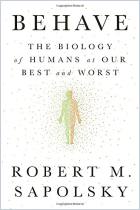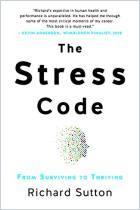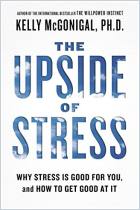加入 getAbstract 阅读摘要

加入 getAbstract 阅读摘要
Robert M. Sapolsky
Why Zebras Don't Get Ulcers
The Acclaimed Guide to Stress, Stress-Related Diseases, and Coping
Henry Holt, 2004
看看什么内容?
Your body hits overdrive when a lion chases you – and when you worry. No lions? Then don’t worry. It’s bad for you.
Recommendation
Your body is a sophisticated machine. If it were an automobile, it would be a top-of-the-line, luxury-class vehicle with all of the latest options. There’s just one problem: Your body was designed for the savannas of Africa, not the streets and sidewalks of some urban metropolis. This is a major issue due to one of your body’s great fail-safe systems: the stress-response mechanism, also called the “fight-or-flight syndrome.” This mechanism provides your body with its best chance to get away safely from sudden peril, such as when a lion attacks you. It immediately floods your muscles with robust energy. Thus strengthened, you are far more able to evade the hungry predator. Unfortunately, this same stress-response also kicks in during psychological stress. In much of modern city life (even without stalking lions), such stress is often chronic, making your stress-response mechanism work dangerously overtime, and putting your body at risk of numerous stress-related disorders and diseases. Robert M. Sapolsky, a leading neuroendocrinologist, explains it all in this lively and entertaining, yet highly informative book. He writes with delightful, ironic verve and dry, irrepressible wit. He details how chronic stress can undermine your health, and explains what you can do about it, even in the urban jungle. getAbstract feels calmer just suggesting that anyone experiencing stress could benefit from reading this book.
Summary
About the Author
Robert M. Sapolsky is a professor of biological sciences, neurology and neurological sciences at Stanford University. He conducts research on stress and neuron degeneration. In 1987, he received a MacArthur Fellowship “genius” grant.



















Comment on this summary